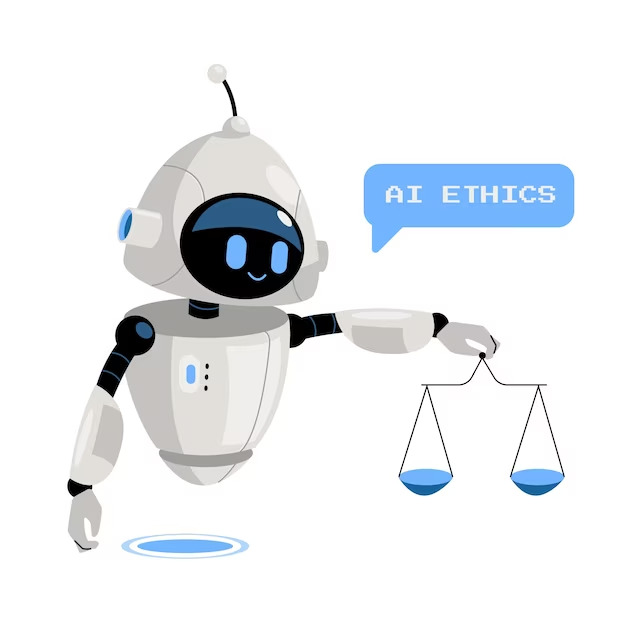Ethical Considerations in Artificial Intelligence: Ensuring Responsible Development

Artificial Intelligence (AI) holds immense promise for transforming various aspects of our lives, from healthcare to transportation and beyond. However, as AI technologies advance rapidly, it’s crucial to address the ethical considerations surrounding their development and deployment. Ensuring that AI systems are developed responsibly is essential to mitigate potential risks and ensure that they benefit society as a whole. In this blog post, we delve into the ethical dimensions of AI and discuss the principles that guide responsible AI development.
Understanding Ethical Concerns in AI
AI systems, fueled by vast amounts of data and complex algorithms, have the potential to influence critical decisions in areas such as employment, criminal justice, and healthcare. However, they also raise several ethical concerns, including:
Bias and Fairness
One of the most pressing ethical issues in AI is the potential for bias in algorithmic decision-making. AI systems trained on biased datasets can perpetuate or even exacerbate existing societal biases, leading to unfair outcomes for certain groups of people.
Privacy and Data Protection
AI often relies on large datasets containing sensitive personal information. Ensuring privacy and protecting individuals’ data rights is paramount to prevent misuse or unauthorized access to personal information.
Accountability and Transparency
The opacity of AI algorithms poses challenges to accountability and transparency. Understanding how AI systems arrive at their decisions is essential for ensuring accountability and building trust among users.
Principles for Responsible AI Development
To address these ethical concerns, several principles for responsible AI development have been proposed. These principles serve as guidelines to ensure that AI technologies are developed and deployed in a manner that prioritizes ethical considerations:
- Fairness and Equity: Ensure that AI systems treat all individuals fairly and equally, regardless of race, gender, or other protected characteristics.
- Transparency: Promote transparency in AI systems by providing clear explanations of how they work and the factors influencing their decisions.
- Privacy and Data Protection: Respect user privacy and data rights by implementing robust data protection measures and obtaining informed consent for data collection and processing.
- Accountability: Establish mechanisms for accountability and oversight to hold developers and users of AI systems accountable for their actions.
- Bias Mitigation: Implement strategies to identify and mitigate bias in AI algorithms, such as algorithmic auditing and bias-aware training datasets.

Conclusion
As AI continues to advance and permeate various aspects of society, addressing the ethical considerations surrounding its development is of paramount importance. By adhering to principles of fairness, transparency, privacy, accountability, and bias mitigation, we can ensure that AI technologies are developed and deployed responsibly, ultimately leading to more equitable and beneficial outcomes for all.
Frequently Asked Questions (FAQs)
- What is ethical AI development?
Ethical AI development refers to the process of creating AI systems that prioritize fairness, transparency, privacy, accountability, and bias mitigation to ensure responsible and beneficial outcomes. - How can AI bias be mitigated?
AI bias can be mitigated through strategies such as algorithmic auditing, diverse and representative training datasets, and continuous monitoring of AI systems for biased outcomes. - Why is transparency important in AI?
Transparency in AI is important because it helps users understand how AI systems arrive at their decisions, enabling accountability and building trust among users and stakeholders. - How can privacy be protected in AI?
Privacy in AI can be protected through measures such as data anonymization, encryption, access controls, and obtaining informed consent for data collection and processing. - What role does accountability play in AI development?
Accountability in AI development ensures that developers and users of AI systems are held responsible for their actions and decisions, helping to prevent misuse or unethical behavior.
By addressing these FAQs, we hope to provide clarity on the ethical considerations surrounding AI development and empower individuals to make informed decisions about the use of AI technologies. If you have any further questions, feel free to reach out to us.
This content focuses on ethical considerations in AI development, offering insights into the importance of responsible AI development and addressing common concerns through informative FAQs.









